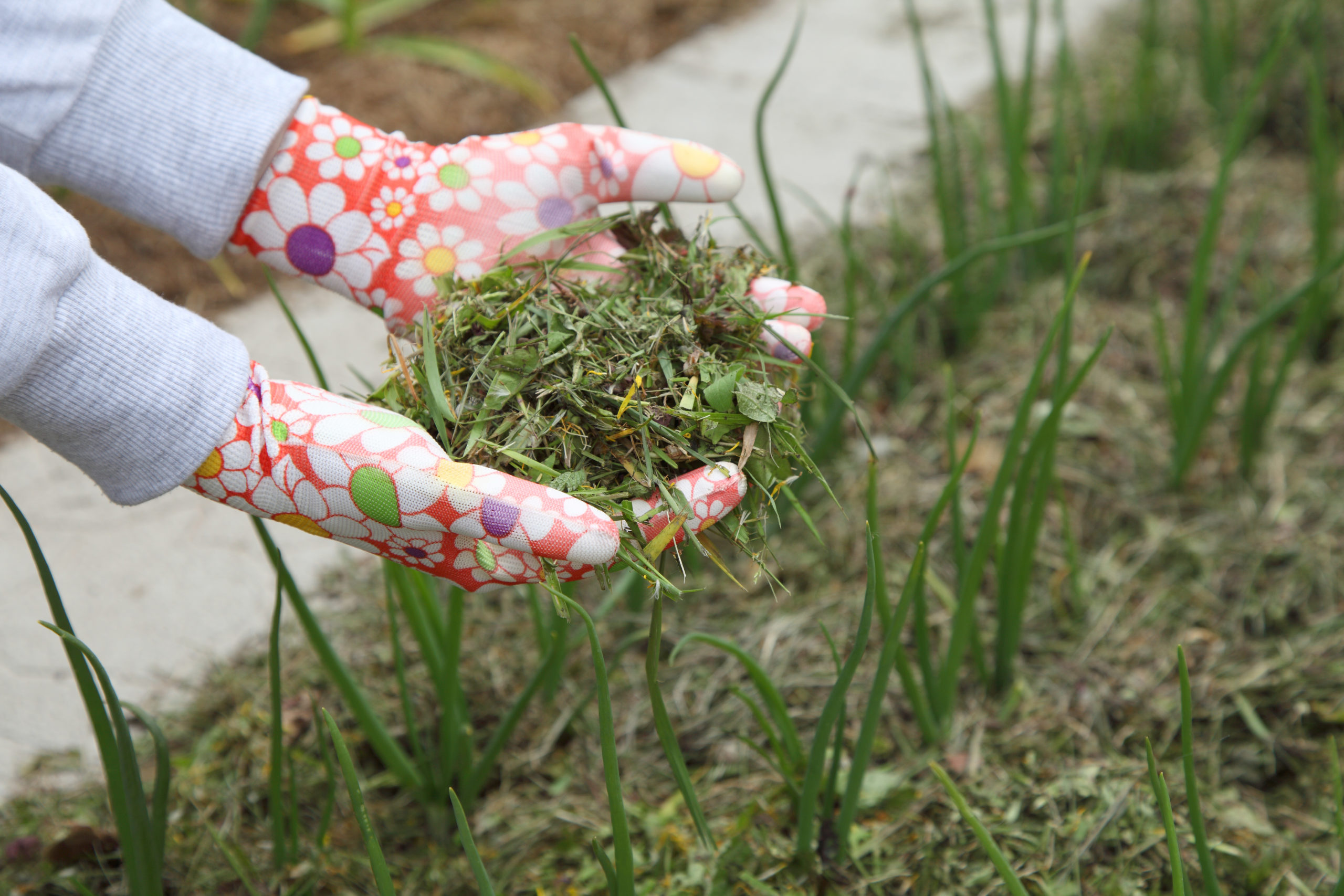Mulching is the application of covering the soil around the vegetables and plants that you prefer to grow. This application or practice is made to boost the various natural processes that would benefit vegetable growth and suppress weeds.
To Grass Mulch or not? There seem to be more Cons than Pros and here we explain in detail why it’s not as endorsed as one might have originally thought.
Grass Mulching Pros You Probably Know:
This practice is highly recommended by most organic textbooks, and it’s supposedly an easy way to incorporate into your gardening system.
One rarely hears much about the cons or disadvantages of grass mulching. Hence, here we’re going to discuss those matters because it’s crucial to consider before grass mulching.
The application of Grass Mulching can be made in different ways: organic matter (leaf mold or straw, woodchip) are the things that can be placed around plants and will eventually rot down into the soil that would improve its structure.
For your alternative, sheet mulches (cardboard or permeable black plastic) can be applied or even materials that are permanent (slate, stones, or gravel), but the latter are often used by those having a low-maintenance ornamental area.
We’re assuming that when you hear about grass mulching, you hear all the good things about its pros. Such as, it will feed your lawn. Naturally, it lessens waste, etc. But why is it not many people mulch around in their plants?
Grass Mulching Pros You Should Know:
• Grass mulching mitigates or suppresses weed growth.Grass mulching reduces soil erosion – which is helpful during winters and heavy rain.
• Grass Mulching keeps moisture- very helpful during hot summers.
• Grass mulching can cut off crops from extreme temperatures – practicable in early and late crops.
• An organic mulch will rot down, eventually providing the soil nutrients and encourage good soil organism and worm activity.
• Mulches can be helpful to keep some crops (like strawberries) from rotting, just by lifting them off the ground.
Grass Mulching Cons You Should Keep in Mind:
• Messy in its application
• Frequent sharpening of your blade is required – this is tiresome.
• Costly because your mower needs enough power
• Mowing is time-consuming if you don’t practice mowing frequently.
• Increases weeds in your lawn
• Chemicals and fertilizers should be avoided because this damages your lawn.
• An organic mulch needs to be applied in a state of loose or partially rotted or early decomposing molds of vegetable matter.
If not, this will lead to nitrogen being taken from the soil, or an anaerobic decomposition that would lead to ‘sour mulch’ that turns acidic and can be a detriment instead of serving as a protection to plants.
•An organic mulch usually needs to be quite thick- one to three inches thick is generally good to be placed around plants; many of the mulch will rot down to something smaller.
Why Mulching can be Harmful to your Lawn?
If you are clueless about the consequences, here are a few drawbacks that you need to consider. We’re not anti-mulchers.
However, we feel it’s vital that we bring you all the information – good and bad – so that you can make an informed decision. We don’t want you to be taken by surprise with unwanted results through not having the facts.
• The Practice of Mulching can be Messy
Be aware that whenever you see a mulched lawn in the mall or any places that are on display, and you are amazed that it looks faultless – those lawnmower manufacturers produce something picture-perfect for great marketing. But the harsh reality is, perfect mulching rarely happens.
Mulching grass is a messy affair, especially if your grass is slightly moist or damp. The clippings stick to your boots, and you could end up trailing clippings all over your yard. This will even get worse when it’s windy because your paths and the patio area will appear as part of your lawn
• It Increases Lawnmower Maintenance
Most people go for a lease maintenance agreement when it comes to a lawnmower. In wanting to mulch your grass, increasing the frequency of your blade sharpening to two and three times per year is required.
This is because mulch needs to be chopped finely and to be able to achieve that, your mower blade needs to be sharp and pleasant every time you are going to wheel the mower out onto your lawn.
• A More Powerful Mower is Required
For benefit to your lawn – which is the main reason you’re mulching – your mower needs to be powerful to do a good job.
A cheap electric mower should be avoided because it doesn’t have the power needed for the right results. In this regard, you need to look at a mower that has a more powerful engine (either gas or electric)- which means extra power will cost you more.
• Mulching is Challenging When the Grass is Damp
Mulching is hard, especially when you do it in damp conditions. When you are mulching, it’s expected that you’re going to coat the surface of your lawn in a layer of finely chopped grass clippings.
This is how the clippings will break down and eventually gives nutrients across the whole surface area in your lawn. But, sadly, when it’s damp, your clippings tend to clump or get stuck on the underside of your mower.
Clippings that form clumps will block the sunlight and lead to patches of your lawn dying, and it’s a mission to clean the underside of the mower.
• Mowing Takes Longer Time
The desire to mulch your grass right will require longer mowing sessions because you need to get off every single bit of grass that passes to mulch effectively. So, with grass that is overgrown you need to make several cutting lines backward and forward to bring it down to a workable length.
• Mulching Spreads Weeds
This will give you a headache if your lawn has daisies, crabgrass, dandelions, or any common lawn weeds. It’s because when you’re mulching your lawn, you should also mulch those weeds, then you’ll be putting weed spores all over your lawn. In this regard, before mulching, you need to figure out how to remove weeds on your lawn.
• You Can’t Use Chemicals or Fertilizer to Help your Lawn Grow.
A grass that has experienced an application of chemical products and fertilizers will not decompose – unlike grass that has been grown organically. The former can do harm because it breaks down. That’s why you should let your lawn rest from chemicals or fertilizer for a season or two before attempting to mulch your grass.
Final Thoughts
With your research done and the mulching decided upon and completed, you can now sit back and enjoy your garden and lawn.
Doing it the right way for you, (once you have all the info to hand) should always pay off in the end.
Jenny Marie
Tribal Writer
Edited By
Patricia Godwin

